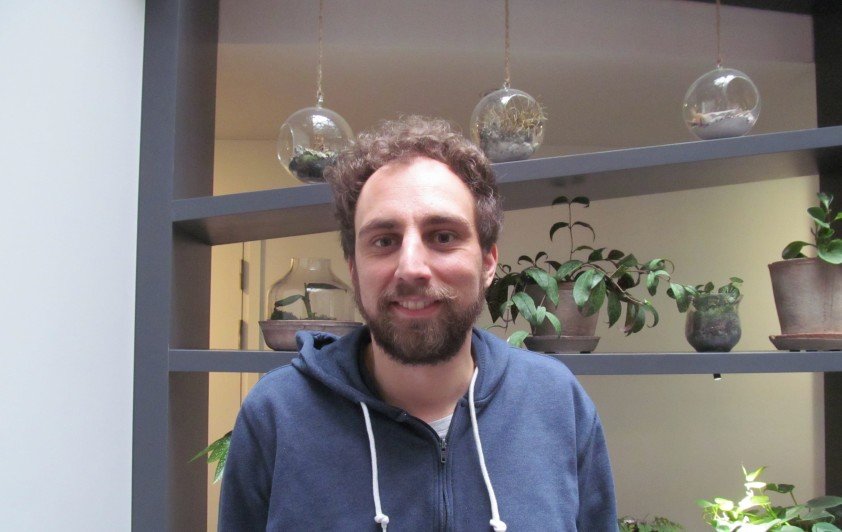The days of startups moving fast and breaking things has seemingly come and gone. Paris-based ridesharing app maker Heetch found this out the hard way. Founded in 2013, its app was launched as a P2P service where anyone could sign up as a driver and give rides to users. The service was primarily marketed as a night-time service for young people getting home from nights out. The launch and attitude harkened back to the original launch of Uber in the US where asking permission from the powers that be wasn’t exactly a priority.
The party wouldn’t last though, as Heetch’s CEO Teddy Pellerin soon found himself staring down a judge in Paris.
“In March 2017 we had the court decision and basically they said what we were doing was an illegal taxi service,” he explained. He went on to point out that Heetch had implemented some rules like capping driver earnings at €6,000 but that wasn’t enough to convince the authorities.
Heetch was suddenly starting from the bottom again. It had to suspend its operations and pay a €600,000 fine. For a company that had only raised around €1 million in funding at that point and had 60 employees that needed to be paid, Heetch was up against the wall.
It lost its community of drivers and was forced to relaunch solely with professional drivers. It was a slow and gradual reclimb and a year later, it’s starting to make head way.
“We were able to find the drivers and we kept some passengers and some new passengers arrived too; we had zero in March 2017 and now we’re doing 100,000 weekly rides in France,” said the CEO.
“We had something that was in the grey zone. What we’re doing now is completely legal. At the start what we were doing, I thought was legal.”
Investment
Next, it needed money. Of course, investors are put off by lack of clarity and unsteady legal ground. Up until this point, Heetch’s model had no certainty but earlier this year, investors including Felix Capital and Alven pumped $20 million into Heetch’s second act.
“I think our investors believe in the team and believe in the vision and the market,” said Pellerin.
Now with firmer legal footing, Heetch finds itself in a new world where taxi and ridesharing apps are under greater regulatory scrutiny; most infamously, the EU ruled last year that Uber is a transport company.
While Uber has dominated the ridesharing market for so long, the US company’s indomitable status has wilted somewhat in recent years under this regulatory pressure and its failures in thoroughly cracking the Asian market.
In Europe and specifically a major city like Paris, there’s an opportunity said Pellerin.
“I think the market is big in Paris that you can have two, three, maybe four platforms, which are reliable and are working well so that you can have a driver in five, six minutes.”
Pellerin describes Heetch as being “more human” and claims that it treats its drivers better than other incumbents. “Not many drivers like the way Uber treats them.”
He won’t reveal any revenue figures but said its carries out 100,000 rides a week with the average fee being €16 (it takes a 15% cut). The service runs 24 hours but nightlife trips are still the most popular, a nod to its roots.
Pellerin likens the situation to Lyft. The Uber competitor isn’t putting its nemesis out of business any time soon but it’s regularly clipping its heels in the US. Pellerin believes another company in Europe can repeat that.
“I think that we can grow more and become the second platform in Paris. If we become the Uber challenger in Paris and especially with this brand that is more adapted to young people and to friendly rides, then we create the Uber/Lyft competition but in Paris,” he said.
“Once that is done, we want to do that in other cities.”
It’s now operating in several other French cities as well as Brussels, Stockholm, Milan, and recently secured a unique deal in Casablanca, Morocco to provide an app for local taxis.
Next steps
Regulation will always be a thorn in the side of apps like Heetch and Pellerin would like to see some changes to help the market grow while also keeping tabs on it.
Alongside the taxis you can hail on the street, France has opened up to the professional driver market somewhat with the VTC (Voiture de transport avec chauffeur) for booking professional drivers in advance, allowing the likes of Uber and Heetch to operate but still with some hurdles.
“It becomes quite difficult to be a professional driver so when you become a professional driver, it asks you a lot of investment in time and money,” countered Pellerin. He would welcome more fluid regulation so that people can become professional drivers more easily with fewer costs and more freedom to work part-time in response to demand.
“That’s the regulation we want to have because you cannot have an interesting market if it is not flexible.”
One crown jewel that Heetch wants to target next is London, a notoriously difficult but important market. Uber most notably has had its fair share of problems there.
“Maybe if we go to London we need to first be able to grow a bit more in Paris so we know we will be able to raise a bit more money,” he said.
“We like it when it’s tough apparently,” he laughed, “we’re used to it”.





Would you like to write the first comment?
Login to post comments